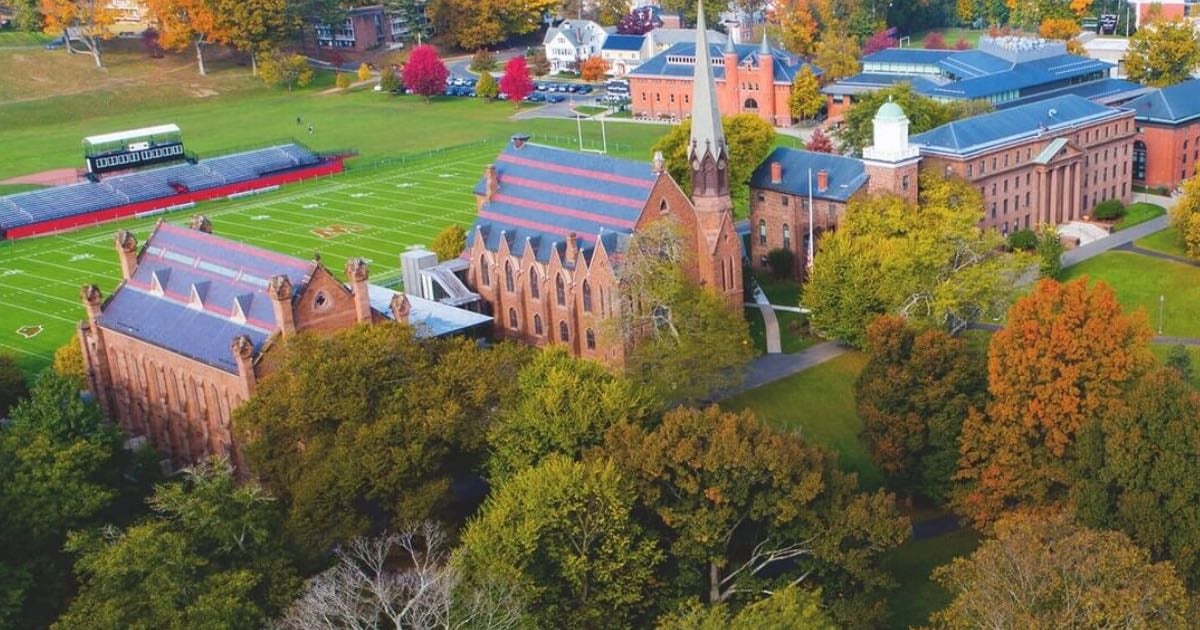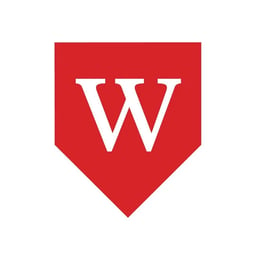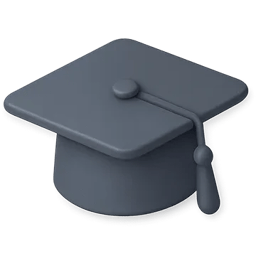United States as an intermediary objective
I viewed education in the US. as a necessary stepping stone to fulfilling myself as a person and as a professional. Naturally, I was also drawn to the liberal arts system. Although I have an idea of my future career, I am still uncertain about my major. I have contemplated pursuing a double major, which is possible in the liberal arts. That's why I was initially attracted to a US education — because of the freedom it offers in choosing my major and subjects.
Admission should not be an objective in itself. It should be a means of pursuing a goal: a resource that can be utilized to achieve a truly global aspiration.
During the admission process, I engaged in a lot of reflection, attempting to identify that ultimate goal, my mission. It confirmed that education in the US is the primary key I would like to utilize in pursuit of this goal.
Additionally, the possibility of full funding played a decisive role. Unfortunately, I could not afford to pay for my education abroad. The cost of living is only part of it — I would not be able to afford schooling in Europe even if I were accepted. That is why education in the US and private universities won me over with full-ride scholarships, which not only support my education but also cover my living expenses in the country.
I am incredibly grateful to my university for providing me with fantastic financial assistance. They will even provide me with a MacBook when I arrive on campus. It's wonderful news and a delightful bonus. I am genuinely glad that I was accepted.
Learning English creatively
I would consider myself a highly ambitious person. When I realized that I needed to go to the US to achieve my goal, the first step was mastering the language. I understood that I had to take matters into my own hands and devise a study plan to make my dream come true.
I began in April 2021 when I had a relatively weak B1 level. By December of the same year, I took the TOEFL and scored 98, which was a significant breakthrough. I was overjoyed to see such progress in just 8 months.
In high school, I made the decision to homeschool since I didn't intend to take the Unified State Exam beyond obtaining my high school diploma. As a result, I had the freedom to dedicate all my free time to studying English across various skills. I spent five hours a day on preparation, which included reading, listening to lectures, and actively immersing myself in an English-speaking environment within a predominantly Russian-speaking setting.
I maintained my own private Telegram channel, where I would send voice messages whenever I had interesting thoughts, and then listen to them and analyze my language usage.
At a certain point, my life completely shifted to English. I could listen to something in English in the background, for example, while cooking. This surprised me greatly because previously, I couldn't multitask while engaging with information in a foreign language. But reaching that level was an amazing and joyful experience.
Gap Year
It is an interesting experience, although not very popular in post-soviet countries. Even in some states of America, it is sometimes viewed with disdain. In the CIS, it is generally not accepted, as the norm is to proceed directly to higher education after high school. I am grateful that my parents supported my aspiration to try and enter the USA.
My gap year began when I enrolled in the June-July program at Stanford Daily. It was an intensive online program that culminated in a paper that included an interview with a professor from Stanford University. It was an incredibly fascinating experience, and I'm glad my gap year started off that way!
Afterward, I began working on my college applications. However, to be honest, I already had a strong foundation in terms of extracurricular activities. I also pursued some projects purely out of passion, although I didn't include them extensively in my application. For instance, I wrote a script for a social project that unfortunately didn't materialize due to external circumstances. I participated in numerous writing contests and was invited to an online conference at the University of St. Andrews in June 2022, where I had the additional opportunity to speak at the conference—an unforgettable experience.
Some of my friends were admitted to universities. Some completed their gap year last year, while others are doing it this year. Together, we organized a workshop where we raised funds for a charity. Essentially, attending the workshop required a $3 contribution to any fund. We had speakers from Harvard, Northwestern, and myself. I spoke about writing and reflection, while others talked about journalism and academic writing. Interestingly, this experience was not mentioned anywhere in my application.
Engaging in activities solely for the purpose of bolstering your application is futile, and I don't recommend it. I tried it myself, but it didn't end well because it didn't bring me any joy.

Mental Support During Gap Year
The psychological aspect is a complex and crucial topic. Undoubtedly, I received significant support from my parents, friends, and my mentor, Pavel Shchedrovitsky. However, when your future is uncertain, it can be challenging to navigate. I had no idea where I would be headed the following year, and the psychological strain loomed over me throughout my gap year. I constantly wondered how it would all unfold and what would happen next. Nonetheless, I found solace in documenting my emotions, keeping notes, and reflecting on my experiences. This practice helped me calm down and gain a fresh perspective on the situation. By March 2023, as I awaited the final results, I managed to find peace and convince myself that life is not solely determined by decisions — my worth and success extend beyond admissions. These thoughts greatly aided me in dealing with the overwhelming anxiety.
It is crucial to note that the significant conclusion of my gap year occurred when I was able to assess my experiences, regardless of the outcomes. Rather than solely tying my gap year to the judgments and thoughts of universities, I reflected on my personal journey. The notes I took, where I organized a whirlwind of complex feelings and emotions, played a vital role in this process.
I am immensely grateful for the genuine support from my family and friends. In the evenings, I could approach my mom, and she could sense from my expression that I needed to open up. I would share my worries, anxieties, and the challenges that incoming students often face, and she would lend a listening ear.
Building my College List
I applied to over 15 universities, including liberal arts colleges, as I sought opportunities to pursue my interests. During the process, I considered various factors, including location and weather. California was outside of my comfort zone, and I preferred even the idea of Alaska over Texas. In choosing universities to apply to, I conducted extensive research on their missions and values. It was crucial for me to find institutions that aligned with my own values. Ultimately, I decided to attend Wesleyan University, which seemed like the perfect fit for me. Additionally, I received an acceptance from Northwestern Qatar but declined the offer.
I also found Aizhankul's blog to be immensely helpful in terms of selecting universities. The blog provided valuable recommendations from a knowledgeable professional, which greatly assisted me in making informed decisions.
Why Wesleyan?
The interview for my Early Decision college didn't go well. There was a lingering unease after the conversation, and I didn't particularly enjoy it. It could have been the interviewer or just a personal feeling that I should have taken into account. I am attuned to the atmosphere of dialogues, and that time, something felt off. As usual, my mother listened to me and provided support during our evening conversation. My intuition proved right: I was rejected by that college. This experience reinforced my belief in the importance of listening to one's instincts.
I added Wesleyan to my college list at the very last moment, and unexpectedly, everything fell into place. It was only after submitting my application that I thoroughly analyzed the university and realized how perfectly aligned our compatibility was. My key skills and talents perfectly resonated with Wesleyan's core values, as reflected on their website. The university's open curriculum fosters critical thinking and creativity, which strongly appealed to me. The interview played a significant role in this realization.
While preparing for the interview, I stumbled upon an article written by the president in 2022, in which he discussed the university's plans for policy reform. I discovered that my application and personal brand aligned seamlessly with their future reform plans. This revelation excited me, and I mentioned it during the interview. It was a direct match, as my media project aligned perfectly with the university's internal political objectives. This aspect greatly enhanced my experience at Wesleyan. During the interview, I was able to showcase my awareness of the president's views, highlighting specific aspects and demonstrating the connection between my experiences and the president's vision. It allowed me to shed light on our shared goals. After the discussion, I was left with a pleasant aftertaste. Consequently, in February, I had a strong feeling that if I were to be accepted anywhere, it would be Wesleyan.

Academic results
I achieved a GPA of 5.0/5.0, but I believe that grades alone are not the sole determining factor. While grades are undeniably important, as they reflect one's academic preparedness, I wouldn't consider any single component of the application as definitive. If your performance in school is not strong, it raises concerns for the admissions committee, and they will likely have questions. Your GPA alone lacks context. However, it is crucial to use your school profile to effectively convey your story to the college. One line from my admission letter read, "thrive academically and socially." This implies that academic achievement does hold significance for colleges. Naturally, since it is an educational institution, you need to demonstrate to the admissions committee that you are capable of handling the academic program they offer.
Application spike
My mentor played a crucial role in helping me discuss my ideas effectively. Personally, I find that writing things down on paper is a powerful tool for self-discovery, and I had developed a strong aptitude for documenting my thought processes. My mentor provided guidance in the right direction. When I shared the results of my reflections, he would assess if they could be effectively incorporated into my application. I am immensely grateful to him; together, we accomplished great work. We would have Zoom calls where he explained how to write a compelling Personal Statement that aligns with my overall idea. He assisted me in selecting the appropriate direction for my thoughts and allowed me the space to reflect on my own, recognizing my capability to do so.
It was my mentor who recognized the potential of writing in my application when I only saw it as a general aspect of my creativity. Indeed, writing emerged as the central activity among all my creative pursuits. This became my unique "spike" or area of specialization.
During my period of reflection, I noted my strengths in creativity, critical thinking, and the ability to craft compelling narratives for future works. Therefore, the Personal Statement became the prime avenue to demonstrate these skills. It was essential for all universities to recognize my "spike." For supplemental essays, I delved deep into specific topics to showcase my strong qualities. At Wesleyan, a supplemental essay focused on the role of writing in my life, which not only deepened my application in that area but also complemented my Personal Statement, which highlighted my passion for writing and theater.
Recommendation letters also held great significance in my application. I ensured to have thorough discussions with my teachers, ensuring that they could portray me in the best possible light.
Leadership qualities were another aspect I emphasized in my application. I had been involved in team projects where I held leadership positions, such as being the founder of a theater club, a lead writer, and a director. Additionally, I undertook independent writing activities and personal projects where I worked individually, such as writing articles. These experiences showcased my ability to self-organize and assume leadership roles. While I am collaborative by nature, capable of working both independently and as part of a team, I can readily take on a leadership role within any community.
How to find one's mission in life
A significant aspect of the application process revolves around self-reflection. However, this process is not only important for admissions but also for understanding one's own identity. In my case, analyzing my extracurricular activities played a crucial role. I began to scrutinize how I spent my free time in general. While I had been taking chemistry and biology classes and participating in Olympiads focused on natural sciences, upon closer analysis, I realized that these activities did not ignite my passion or differentiate me from others. Instead, I found that all my free time was dedicated to creativity and writing. I started to examine the reasons behind my pursuits and questioned why I willingly devoted four hours to the auditorium after seven classes. Despite feeling exhausted, there was an underlying joy that accompanied these activities, even to the point of sitting on the floor due to fatigue. Engaging in what I loved provided a rewarding feeling, where tiredness was not a burden.
The concept of finding your "X" revolves around discovering something you genuinely enjoy doing. I sought activities that I pursued without being instructed or reminded to do so. I documented all my activities, finding solace in writing them down on paper. I tried to establish connections between the different items and sought to understand my motivation.
For instance, I had written a Christian story in 9th grade, but I hadn't deeply considered the underlying purpose behind my creative project. I simply enjoyed crafting stories and wanted to put them on paper. It happened that my tale revolved around people of faith, a category I included myself in. However, over time, I realized that it held a more significant global purpose. I was dissatisfied with the way media and resources portrayed individuals of faith, noting the bias present in their representation. Thus, I aimed to create creative materials that would present a rationalized and balanced image of these individuals.
Finding motivation is crucial. Even if you engaged in certain activities without consciously realizing their purpose, there was always an underlying reason behind your actions.
In 7th grade (although this wasn't included in my application), I wrote a poem about specific political events in my country. Reflecting on this, I realized that it embodied my core values — an idea that permeated many of my activities and should hold a central position in my application.
Reflection is a powerful tool that assists individuals in determining their future paths. I appreciated this aspect of the process in the United States as it helped me define my trajectory of growth. While studying in Russia, I focused on the sciences that came easily to me and transferred to a science class because I enjoyed employing critical thinking skills. It was through the realization of the connections between my activities that I understood the true reasons behind my choices, which were not solely driven by a desire to pursue a future in bioengineering. While I did indeed enjoy problem-solving, there was a deeper value underpinning my pursuits.
Self-Identification Through Fiction
College Essay Guy offers wonderful and comprehensive courses that delve into topics like reflection and personal branding. While these courses primarily target domestic students, foreign applicants, especially those from the CIS community to which I belong, may find it challenging to relate to their experiences.
As someone who loves writing and creating characters, I unintentionally focused on myself while developing portraits of these characters. For me, this process became a form of reflection, even if I didn't initially realize it. I transferred this hobby and approach to the college admission process. I emphasized ambiguous qualities in my characters, qualities that I wasn't fully aware of within myself. By crafting characters from scratch, I inadvertently uncovered aspects of my own identity. It was an enjoyable process of writing a screenplay, through which I discovered facets of my own being.
I also recognize that those who enjoy reading often seek to find kindred spirits or analyze characters who resonate with them. Even if you don't engage in the act of creating, simply immersing yourself in fictional worlds allows for introspection. You can reflect on why you are drawn to certain characters, pondering why you connect with them on a deeper level. This exploration can lead to fascinating insights and uncover qualities about yourself that you may not have even realized. Ultimately, we tend to be drawn to characters who resemble us or possess traits we aspire to possess. By examining our preferences, we can better understand ourselves. For instance, Why do you like this particular character? Why not the main character, but a secondary one?
My personal blog
I run a personal blog that serves as a platform for sharing my individual experiences. While readers may draw conclusions or analyze themselves based on my stories, it is important to note that I am not an expert. I do not dare to take on the responsibility of guiding others. Therefore, my blog serves as a testament to my own journey and acts as a precursor to the experiences I anticipate at Wesleyan University.
You can find my blog in Russian language at: https://t.me/onnorg




